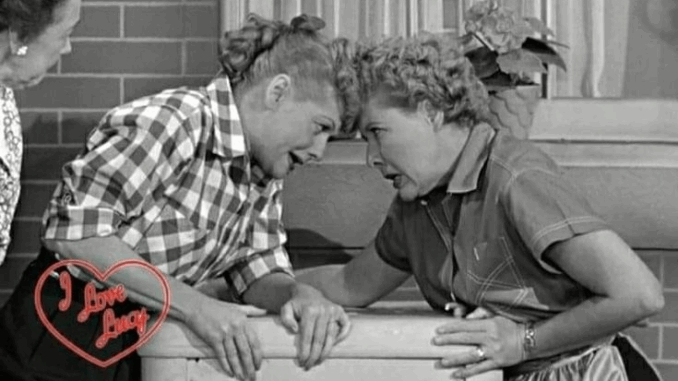
When we think of great television pioneers, Lucy Ricardo might not be the first name that comes to mind — but she should be. More than just a hilarious housewife, Lucy was part of a revolution in entertainment. And behind her, Lucille Ball was changing television history.
I Love Lucy was groundbreaking not just for its comedy, but for what it represented. It was the first scripted show filmed in front of a live studio audience on 35mm film — setting the standard for sitcom production for decades. It also featured a real-life interracial couple on screen (Lucille Ball and Desi Arnaz), something unheard of in the conservative 1950s.
Lucille Ball wasn’t just the star — she was the boss. As co-founder of Desilu Productions, she became the first woman to run a major Hollywood studio. Under her leadership, Desilu produced landmark shows like Star Trek, The Untouchables, and Mission: Impossible. Lucy Ricardo may have been fictional, but Lucille Ball was a real-world powerhouse.
And yet, the character of Lucy Ricardo mattered just as much. She challenged the passive, domestic image of 1950s women. Instead of being content in the kitchen, Lucy demanded the spotlight — loudly, clumsily, hilariously. She showed women on screen as capable of being silly, flawed, ambitious, and funny — not just sidekicks or love interests.
Her legacy lives on in every funny woman who followed — from Carol Burnett to Tina Fey, from Lucille’s own daughter, Lucie Arnaz, to modern-day sitcom heroines like Leslie Knope or Moira Rose.
Lucy Ricardo taught us that it’s okay to fail, as long as you do it with heart — and maybe a funny hat.
